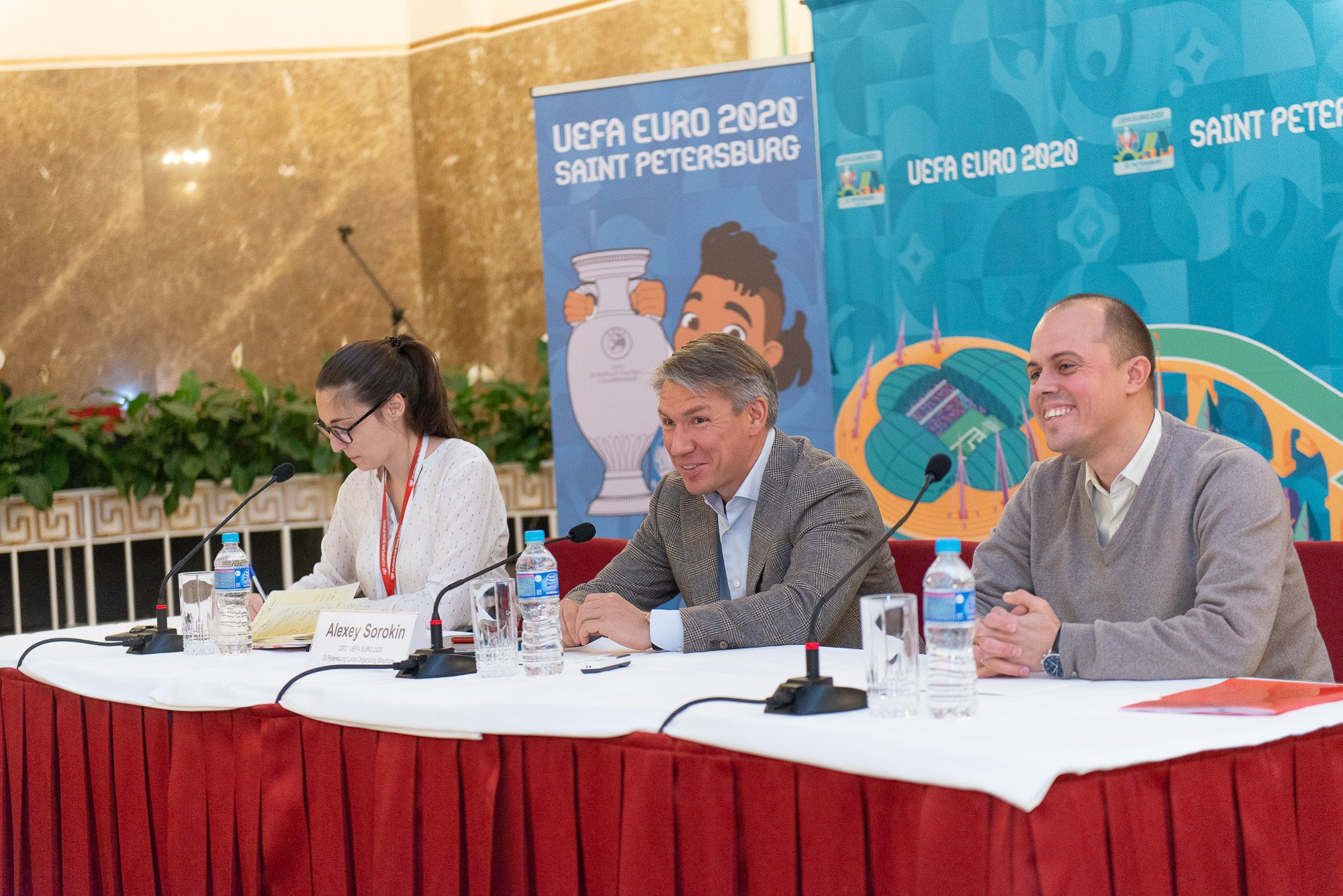November 19 – Having hosted the World Cup in 2018, Russian FA attention is now focussed on delivering their part of Euro 2020, despite the allegations and controversies of the past returning to haunt the present news agenda. In the first of two articles Andrew Warshaw reports on the progress being made in St Petersburg.
Alexey Sorokin knew exactly what the first line of questioning would be and sought to knock it on the head straight away.
The last thing Sorokin, the canny public face of Russia’s 2018 World Cup organising committee, needs as he switches to Euro 2020 duty are constant reminders of past suspicions about the voting process.
Facing a group of journalists at the weekend as he addressed the virtues of St. Petersburg as one of the 12 cities being used for the one-off pan-European finals, Sorokin moved swiftly to dismiss recent reports that threaten to undermine the choice of Russia’s second city by UEFA as one of the multiple hosts of next summer’s tournament.
The reports, emanating not from the west but from Sorokin’s own country, emerged late last month and made headline news, appearing to show Russian officials compiled a dossier on which FIFA members could be bribed to vote for their 2018 World Cup bid.
The dossier reportedly contained extensive background information about FIFA bigwigs though there is no suggestion that the Russian officials acted on the information.
Russia has long maintained that it was explicitly cleared of any wrongdoing by the Michael Garcia inquiry into the entire voting process for 2018 and 2022 World Cups even though the country was found not to have fully reported all its contacts with the executive committee members, as required by the rules.
Russia’s official bid, Garcia’s 2017 report pointed out, had “leased” its computers, then returned them to their owner, who destroyed them.
But the investigative news website The Insider has now re-opened the entire can of worms almost 18 months after the country staged a hugely successful World Cup.
Far from refusing to take questions about the issue, Sorokin was at pains to tackle it head-on to get across the fact that he and his St. Petersburg organising team were not unduly alarmed by the resurfacing of suspicions about how Russian officials behaved during the World Cup bid process.
“We like challenges, they are an inherent part of the job, but only if they are not created artificially,” said Sorokin. “We don’t appreciate it if they are created entirely out of the blue by someone’s bad intentions.”
The hacked emails purportedly came from the account of Sergei Kapkov, a former Russian politician and head of the country’s National Academy of Football Fund.
The emails are reported to contain dossiers with instructions on how to bribe every member of the then FIFA executive committee including Franz Beckenbauer and Michel Platini. According to screenshots published by The Insider, they claim a Russian organising committee executive sent the dossier to three officials – including Kapkov.
Sorokin, who has already described the reports as “fabricated from start to finish”, used the weekend media opportunity in front of a group of mainly western reporters, including this correspondent, to get the message out that the Russians would not be distracted from their task of part-organising Euro 2020.
“We are puzzled that these issues and questions still appear,” said Sorokin, head of the local Euro 2020 organising committee. “We have maintained a number of times that the (World Cup) bid campaign was honest and very transparent.”
“We have responded to multiple questions including to the FIFA commission headed by Mr Garcia. We have transferred all the documents including financial documents. We don’t know what (we can) add apart from repeating previous statements.”
“We did not give anybody expensive gifts, we did not exert any influence over exco members.”
Sorokin implied that the fact that St. Petersburg had been selected as one of the 12 Euro 2020 hosts and that there had been no negative publicity about the venue proved that UEFA trusted Russia as an honest broker.
“Although our past seems to be the focus rather than the present, preparations are going well,” he said.
“There have been no questions about the present. Unfortunately life is flush with so-called fake news. From time to time documents are forged and we are no exception. But it’s hard to add anything to what we’ve been saying for the last 10 years.”
Contact the writer of this story at moc.l1714046250labto1714046250ofdlr1714046250owedi1714046250sni@w1714046250ahsra1714046250w.wer1714046250dna1714046250

